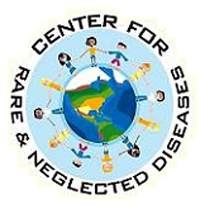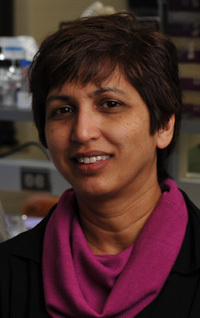James Parsons and Dr. Carrie Quinn, a married couple and graduates of the University of Notre Dame, have made a $5 million gift to their alma mater to endow the directorship of the University’s Center for Rare and Neglected Diseases.

“The work of Notre Dame researchers in the area of rare and neglected diseases is perfectly suited to our Catholic mission and is one of our top priorities,” said Rev. John I. Jenkins, C.S.C., University president. “We are immensely grateful to Jim and Carrie for this generous gift, which will contribute immeasurably to our efforts to increase awareness, enhance research, find cures and, most importantly, bring hope to families afflicted with these forgotten diseases.”
Parsons earned his bachelor’s degree in finance from Notre Dame and a master in business administration degree from Harvard University. He has been a portfolio manager for Viking Global Investors in New York since 2003.
Quinn is a graduate of both Notre Dame and Tufts University Medical School. She completed her residency at Boston Children’s Hospital and now is a pediatrician in Forest Hills, N.Y.
The gift to endow the directorship of the Center for Rare and Neglected Diseases is the latest of several recent initiatives at Notre Dame in this area of research. Others include the establishment of the center itself in 2008; the creation of the multidisciplinary Drug Discovery Core, which is composed of Notre Dame faculty and other members of the Niemann-Pick Type C (NPC) research community; an undergraduate course on clinical research and outreach; a collaborative agreement with Eli Lilly and Co. for drug development discovery for NPC and malaria; a Research Incubator Program; and a gift from the Ara Parseghian Medical Research Foundation to establish the Michael, Marcia and Christa Parseghian Endowment for Excellence to support research and discovery of NPC.
“Our commitment to research on rare and neglected diseases comes from the heart of our mission in the College of Science said Gregory Crawford, dean of the college. “This commitment signals a strategic direction for us: We will bring the full strength of our resources, the best scientists and the most cutting-edge research to bear for the sake of suffering human beings. As a Catholic university, we understand the importance of common good, of human solidarity, of serving the poor – and we hear the call to heal the sick. We are grateful for the Parsons’ gift, their sharing with us in this mission, and their generosity and love for Notre Dame Our Lady.”

The first Parsons-Quinn Director of the Center for Rare and Neglected Diseases is Kasturi Haldar, Julius Nieuwland Professor of Biological Sciences and a member of the Notre Dame faculty since 2008.
Haldar earned her doctoral degree from the Massachusetts Institute of Technology and taught and conducted research at Northwestern University prior to joining the Notre Dame faculty. She focuses on understanding cell function and cerebral disease in muring models that are important areas for discovering disease treatments. Her identification of how the malaria parasite attacks red blood cells revealed that a common blood pressure drug can be used to treat the disease, preventing the parasite from invading the cell. More recently, she researched the role of lipids, which has led to understanding how statins – the drugs used to lower cholesterol levels – protect against bacterial infection.
Haldar’s work also has revealed new pathways that control the proper function of cellular components called lysosomes, which are defective in storage and neurodegenerative diseases such as NPC. Current studies focus on development of a quantitative, rapid neurobehavioral score by which to measure NPC disease in mice. Using this scale she is able to identify unique genetic signatures associated with disease progression, develop biomarkers as well as screen for drugs to treat disease in mice, in order that drugs can be progressed to clinical trials and therapeutic utilization.
The Center for Rare and Neglected Diseases seeks to fill a huge hole brought on by the economics of healthcare. Although many people worldwide are suffering and dying from certain diseases, these diseases have been largely ignored by pharmaceutical companies because the potential financial rewards for developing new drugs and vaccines to treat them are paltry.
Haldar points out that there are thousands of rare diseases, typically defined as those which afflict fewer than 200,000 people. Diseases in this category include cystic fibrosis, thalassemia, NPC and several rare forms of cancer.
Neglected diseases, on the other hand, affect billions of people worldwide but, like rare diseases, they have been largely ignored by pharmaceutical companies and researchers. Many who suffer from neglected diseases such as tuberculosis, malaria and lymphatic filariasis live in the developing world.
The center is composed of researchers from College of Science departments, such as biological sciences and chemistry and biochemistry, who have research experience in vaccine development and medical chemistry, and from College of Engineering departments with expertise in drug delivery platforms. Faculty members from the College of Arts and Letters and Center for Social Concerns also are involved in outreach to patient communities and social development programs.
The Parsons-Quinn gift is a component of the University’s $1.5 billion “Spirit of Notre Dame” campaign. Announced in 2007 and continuing to 2011, “Spirit” is the most comprehensive campaign ever undertaken by the University and the largest fund-raising effort in the history of Catholic higher education. The campaign goal was surpassed in June 2009.